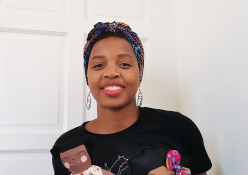If you aren’t working on your personal brand, it’s time to step things up.
Who once said, ‘I don’t think I belong here, because I know a lot of big words’? That would be the famous, uber-successful Oprah Winfrey telling her school teacher why she should skip a grade. Oprah is perhaps one of the greatest examples of personal branding done the right way.
Say the name ‘Oprah’ and there’s a good chance someone will respond with, ‘You get a car! And you get a car! Everyone gets a car!’
STAND FOR SOMETHING
That’s the power of branding, or personal reputation. It’s about making your name synonymous with something, making people aware that you stand for something – or many things. In Oprah’s case: generosity, relatability (her own weight struggles), trustworthiness (getting celebrities to open up on her show), and philanthropy (charities, opening schools).
So, what does your brand stand for? And why is it important that you even have a personal brand? Now, more than ever, the importance of your name and reputation is invaluable. Research confirms this. A recent survey by American research consultancy Kredible revealed that more than 50% of companies lost business because of information that customers had found online. Worse, some places had lost business because customers hadn’t found information about them! This goes to show the importance of a personal brand. A Jobvite survey of recruiters echoes these sentiments: 95% of people surveyed agreed that a competitive personal brand is an essential part of finding the best applicants in the workplace.
One of the most important steps in building a brand is to know exactly what your brand is. As career coach Ann Baret explains: ‘Get to know who you are, master yourself and manage yourself. IQ is important and always will be, but so is EQ (emotional intelligence).’
7 WAYS TO BUILD A BRAND
1. Sit down with a pen and piece of paper
Jot down your name and then write down any and every word that comes to mind when you look at your name. Some could be more personality related, but try to really hone in on words that describe your professional status, your job, how you feel about your work, things that you enjoy doing, areas where you excel, and so on.
2. Pick out all the most positive words or aspects of your professional character
These could be strengths such as efficiency, attention to detail, creativity, innovation, good with deadlines, excellent at managing budgets, etc. Then think about the things that you personally value, such as integrity, transparency, diversity and equality for all. Really spend some time assessing what you value in the workplace. Compare your values with the words you’ve written about yourself. Do they match? How can you get them to match? For example, if you want to be more efficient, what can you do to get there? Expand on these ideas.
3. Detail your dream self
A brand is also an aspirational thing: It’s what you hope to be. So, it’s a good idea to detail plans, courses, workshops, and tangible things you can do to get to the ideal in your head.
4. Do an audit of your social media accounts
What does your social media say about you? Remember: Almost all prospective employers do an online search of you to gauge information about you. Sift through your pictures, updates, tweets and online presence to assess whether what’s out there is information you are comfortable with others seeing. This isn’t to say that social media is a pitfall – if anything, the various platforms could help your brand really take flight. Personal branding expert Dan Schawbel writes in his book Me 2.0: Build a Powerful Brand to Achieve Career Success, ‘On Twitter and LinkedIn, you should become a resource in your niche and give value over time. If you do both, then you won’t have to worry about applying for a job; it will come right to you.’
5. Take responsibility
… for both your career and your reputation, advises life coach Juliette Gyure. ‘What is most important is for us to know who we are, what we stand for, where we want to go, how we can get there, what contribution we want to make in the world, and not to allow the opinions of others to derail us.’
6. Get creative
Invest in creating a professional-looking website that functions as your online CV. Dan advises: ‘You have to establish your own personal adverts so you can be found by recruiters and capture their attention.’
7. Put yourself out there
While you’re singing your own praises online, take it one step further, suggests Dan. Once you’ve identified your expertise and found your brand niche – let others know! ‘To do this, assume the role of a content producer, not just consumer. This means you should either start a blog or a podcast series, where you can contribute to your community and position yourself as an expert in your personal field.’
A SIMPLE FORMULA
Remember, all good brands are identified by at least one thing. McDonald’s: Big Macs. Google: search. Instagram: pretty pictures. Zero in on the thing about yourself that you want to convey to the world. Then, build yourself around that idea.
Text: Charlene Naidoo; Photography: Andrew Neel on Unsplash







